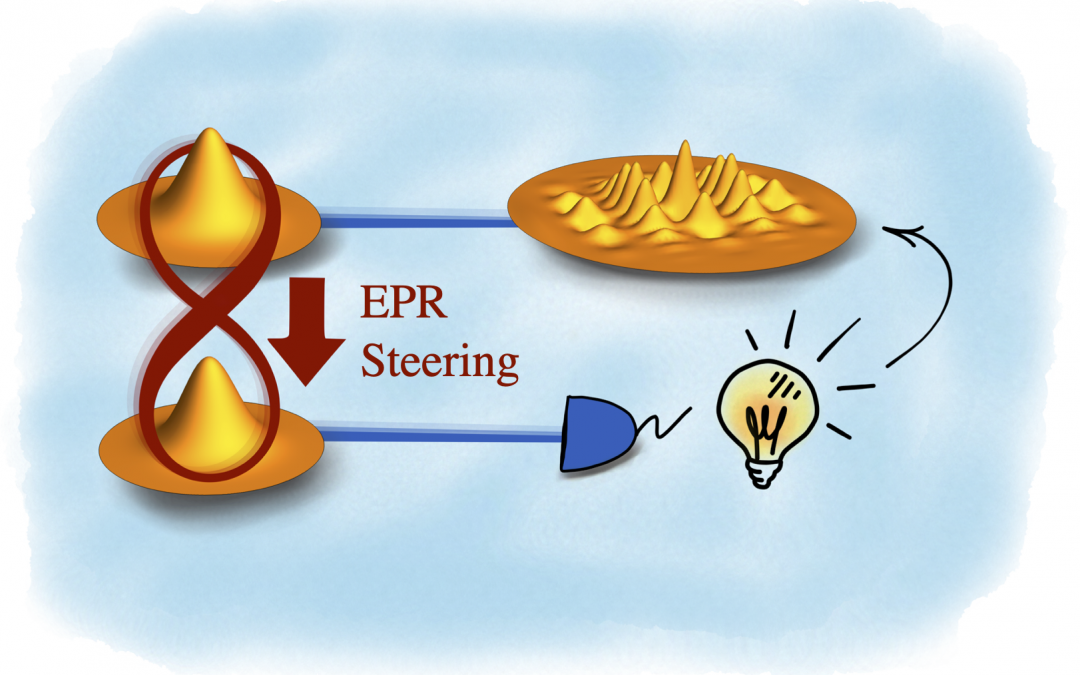Quantum physics in phase space
Phase space is a useful tool to represent physical systems, such as the position and momentum of a particle, or the electric field of propagating light. It is common to describe quantum states of such systems by their Wigner function: the quantum generalization of the joint probability distribution. Of particular interest are the states for which the Wigner function reaches negative values. This “Wigner negativity” is a hallmark of quantum phenomena, and is known to be necessary for quantum computing. In our recent publications [1,2], we theoretically study a method to remotely generate Wigner negativity. First, we divide our system into two subsystems. Then, we show that upon appropriate measurements on one subsystem one can induce Wigner negativity in the other subsystem, provided there are strong quantum correlations between the two. We precisely quantify which level of correlations and measurements are necessary and sufficient for success.
Einstein-Podolsky-Rosen steering
More specifically, we start from a Gaussian state and provide a general expression for the Wigner function of one part of this system (kept with Alice), when it is conditioned upon a measurement performed on another part of the system (kept with Bob). We prove [1] that Alice can only acquire Wigner negativity when they initially share a state with the following property: upon Alice’s measurements of position and momentum, Bob obtains conditional measurement statistics that violate Heisenberg’s inequality. Alice can then perform Einstein-Podolsky-Rosen steering on Bob’s subsystem.
Two sides of the same coin
Our work [1] thus fundamentally connects Wigner negativity and Einstein-Podolsky-Rosen steering, having crucial consequences for quantum state engineering. In previous work [2], we had already shown a complementary result: when there is Einstein-Podolsky-Rosen steering in the initial Gaussian state, Bob can always induce Wigner negativity in Alice’s subsystems by performing a clever operation known as “photon subtraction”. This means that we have found a new definition for Einstein-Podolsky-Rosen steering. It is the quantum correlation in the Gaussian state, shared by Alice and Bob, that allows Bob to induce Wigner negativity in Alice’s subsystem.
Further reading
- M. Walschaers, V. Parigi, and N. Treps, Practical Framework for Conditional Non-Gaussian Quantum State Preparation, PRX Quantum 1, 020305 (2020)
- M. Walschaers and N. Treps, Remote generation of Wigner-negativity through Einstein-Podolsky-Rosen steering, Phys. Rev. Lett. 124, 150501 (2020).


Recent Comments